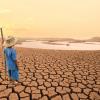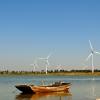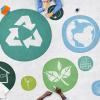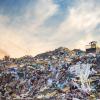Story ideas, media briefings, and press releases specifically for media. If you are a journalist, you can subscribe to receive upcoming press releases by email.
Press Releases

02 March 2022
Taking a systems approach to cyber security
The frequency and severity of cyber attacks on critical infrastructure is a subject of concern for many governments, as are the costs associated with cyber security, making the efficient allocation of resources paramount. A new study proposes a framework featuring a more holistic picture of the cyber security landscape, along with a model that explicitly represents multiple dimensions of the potential impacts of successful cyber attacks.

28 February 2022
Taking climate action now can secure our future
Human-induced climate change is causing dangerous and widespread disruption in nature and affecting the lives of billions of people around the world, despite efforts to reduce the risks. People and ecosystems least able to cope are being hardest hit, according to the latest Intergovernmental Panel on Climate Change (IPCC) report, released today.

14 February 2022
Pursuing carbon neutrality and water security in China
China has promised to become carbon neutral before 2060 and has coupled this ambitious target with stringent limitations on industrial water use by 2030. An international team of IIASA researchers and Chinese colleagues explored the effects of simultaneously pursuing these goals.

07 February 2022
Experience of climate extremes increase Green voting in Europe
What role do experiences with climate change and extreme events play in shaping environmental attitudes and to what extent can they explain the recent rise in environmental concerns and willingness to vote for Green parties across Europe? IIASA researchers set out to investigate these and related issues in a new study just published in Nature Climate Change.

03 February 2022
Ill-considered area-based conservation could affect food security and health
Area-based conservation targets aimed at stopping and reversing global biodiversity loss are set to form an integral part of the post-2020 Global Biodiversity Framework discussions later this year. An international team of researchers have however found that strictly protecting global land area for conservation could have an adverse impact on human health and food security in some parts of the world.

01 February 2022
New framework of indicators for achieving Sustainable Development Goals
The world is not on track to achieve all the UN Sustainable Development Goals (SDGs) by 2030, and more insight into how we can get back on track is urgently needed. An article by an international team of scientists proposes a more limited set of more easily measurable targets that can be used in scenario analysis for achieving all of the SDGs by the target date.

31 January 2022
Forest management increases climate benefits provided by boreal forests
The carbon stock in managed boreal forest landscapes is increasing, while it is relatively unchanged in less intensively utilized forests where carbon losses due to forest fires have instead been significant during 1990-2017, according to a new report by the International Boreal Forest Research Association (IBFRA).

20 January 2022
Coordinated action needed to halt and reverse dangerous biodiversity loss
Halting, then reversing the ongoing loss of Earth’s plant and animal diversity requires far more than an expanded global system of protected areas of land and seas, scientists warn. What is needed, is successful, coordinated action across a diverse, interconnected set of transformative changes, including massive reductions in harmful agricultural and fishing subsidies, deep reductions in overconsumption, and holding climate change to 1.5°C.

10 January 2022
How circular waste management systems can benefit the environment
The increasing amounts of municipal solid waste and ineffective waste management systems threaten the environment and contribute to climate warming, yet the waste sector is often neglected in discussions about climate change and air pollution. A new IIASA-led study shows, for the first time, how circular waste management systems can help to effectively curb emissions of greenhouse gases and air pollutants.
